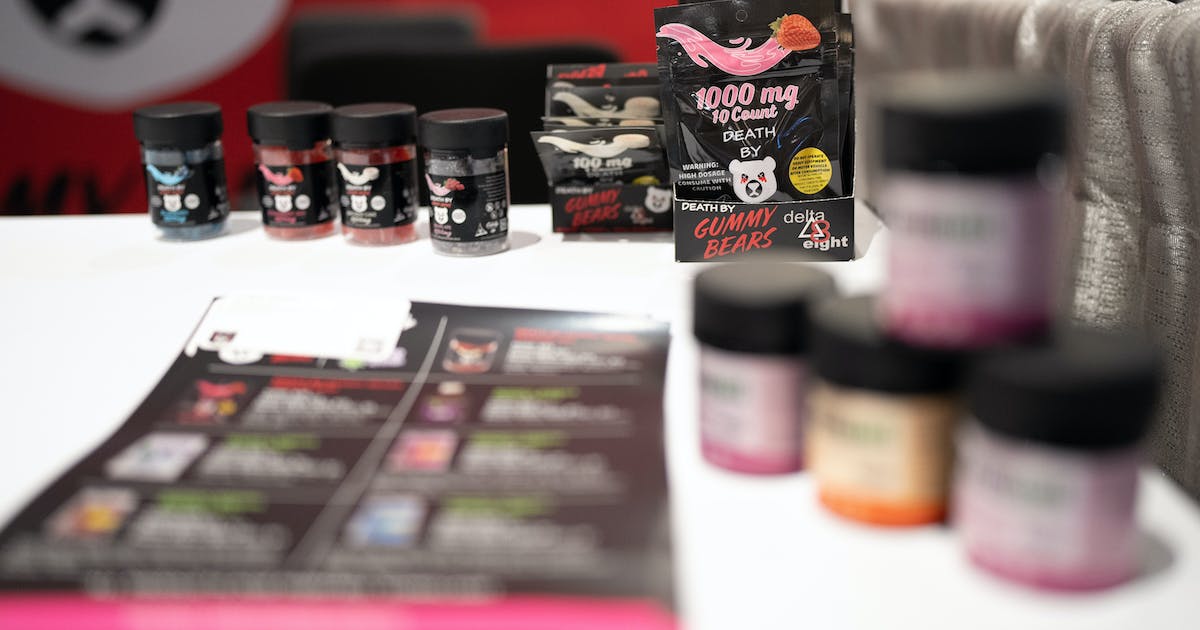Beware of Unlawful High-Potency Cannabis Products

- The Minnesota Department of Health inspected 167 retailers that sell hemp-derived cannabis products between August and November and found that 39% carried products with illegally high doses of THC. Hemp-derived edibles and beverages can contain no more than 5 milligrams of THC per serving and 50 milligrams per package under current law. Illegal, high-dose hemp-derived products may contain hundreds of milligrams of THC per serving leading to adverse health effects.
- More than 70% of the inspected retailers had “deficiencies of one kind or another,” such as incorrect labeling or product placement. High-dose edibles have been a persistent problem in Minnesota’s THC market. Minnesota’s hemp-derived cannabis market was not closely monitored until this summer, when the Health Department was given authority to inspect products and businesses to ensure they are complying with dosage limits, testing requirements and labeling laws.
- Minnesota Department of Health has five inspectors and will be hiring a sixth in January to adequately monitor the roughly 3,000 businesses that have registered with the state to manufacture and/or sell hemp-derived cannabis products in Minnesota. Retailers selling products with illegally high doses of THC may be fined up to $10,000 per incident. Businesses that sell hemp-derived cannabis products must also register with the state and could be hit with a $10,000 fine if they don’t.
Minnesota Retailers Found Selling Illegal High-Dose THC Edibles
Health inspectors in Minnesota discovered that over one third of the evaluated retailers were selling illegally high-dose hemp-derived THC edibles.
The Minnesota Department of Health inspected 167 retailers selling hemp-derived cannabis products from August to November, finding 39% stocked products exceeding the legal THC limit.
Current law stipulates that hemp-derived edibles and beverages may only contain up to 5 milligrams of THC per serving and 50 milligrams per package.
The department warned that illegal, high-dose hemp-derived products could contain up to thousands of milligrams of THC per package, leading to potential adverse health effects including unresponsiveness, seizures, or psychotic episodes.
Garry Bowman, Health Department spokesperson, revealed that more than 70% of inspected retailers had deficiencies such as incorrect labeling or product placement.
The problem of high-dose edibles persists in Minnesota’s THC market, as evidenced by the state’s first pick to lead the Office of Cannabis Management, Erin DuPree, stepping down after being found selling illegal high-dose products at her Apple Valley cannabis shop.
The Minnesota hemp-derived cannabis market underwent limited monitoring until this summer, when the Health Department gained authority to inspect products for compliance with dosage limits, testing requirements, and labeling laws.
Chris Elvrum, assistant director of the Office of Medical Cannabis, wasn’t surprised by the prevalence of retailers carrying high-dose products, citing the lack of marketplace regulation.
The inspections occurred with only one department inspector. Now, with five inspectors and plans to hire a sixth, the department is set to monitor the registered 3,000 businesses manufacturing or selling hemp-derived cannabis products.
Elvrum mentioned that the additional staff will focus enforcement efforts on the types of businesses that are most likely to sell noncompliant products.
Elvrum identified smoke shops, hemp shops, and some convenience stores as common retailers of high-dose products, with approximately 800 registered with the state.
State inspectors plan to audit liquor stores, bars, and restaurants selling hemp-derived THC seltzers. The Health Department generally finds these beverages more compliant than gummy products.
When illegal products are found, retailers are asked to destroy them immediately or at a later date, under inspector supervision.
Elvrum confirmed that all visited locations complied with the product destruction requirement.
Retailers selling high-dose illegal THC products face fines of up to $10,000 per incident. Similarly, businesses selling hemp-derived cannabis products must register with the state or face a $10,000 fine.
Elvrum stated that while no fines have yet been issued, repeated violations could lead to penalties.
“We generally give them the benefit of the doubt on the first visit,” Elvrum stated. “However, repeated infractions of the same nature could result in a penalty.”
—
Read More Cannabis News


Leave a Comment